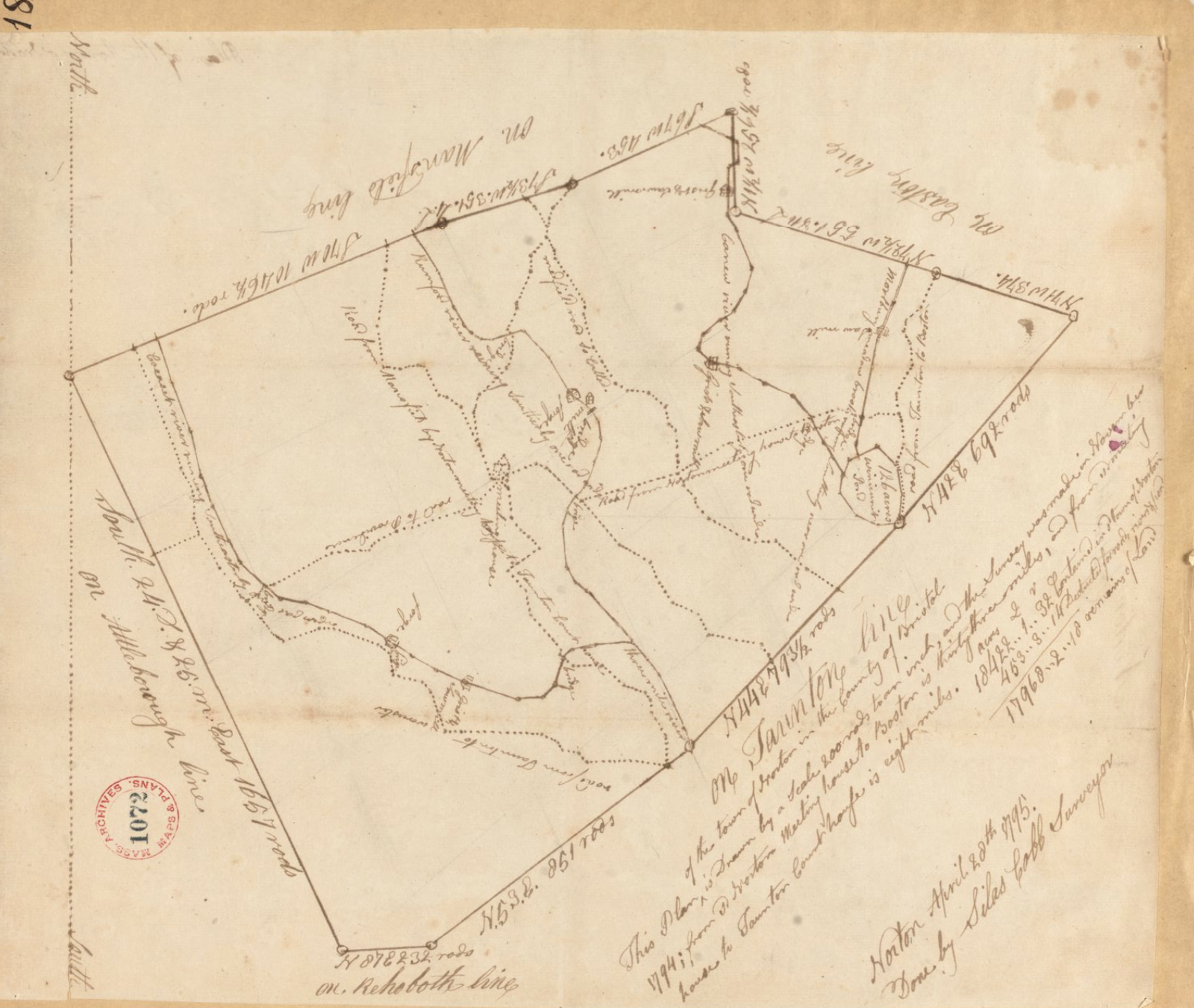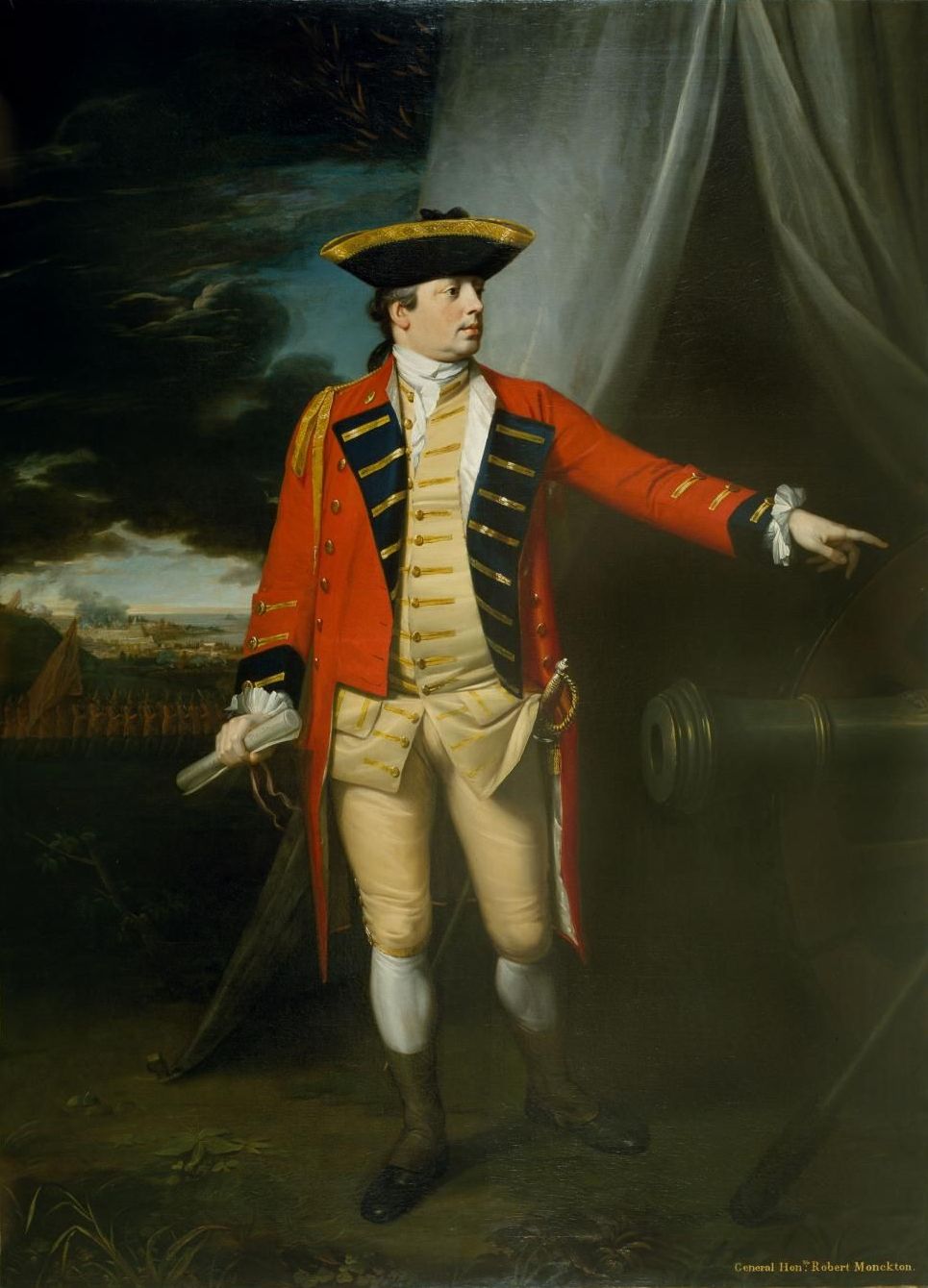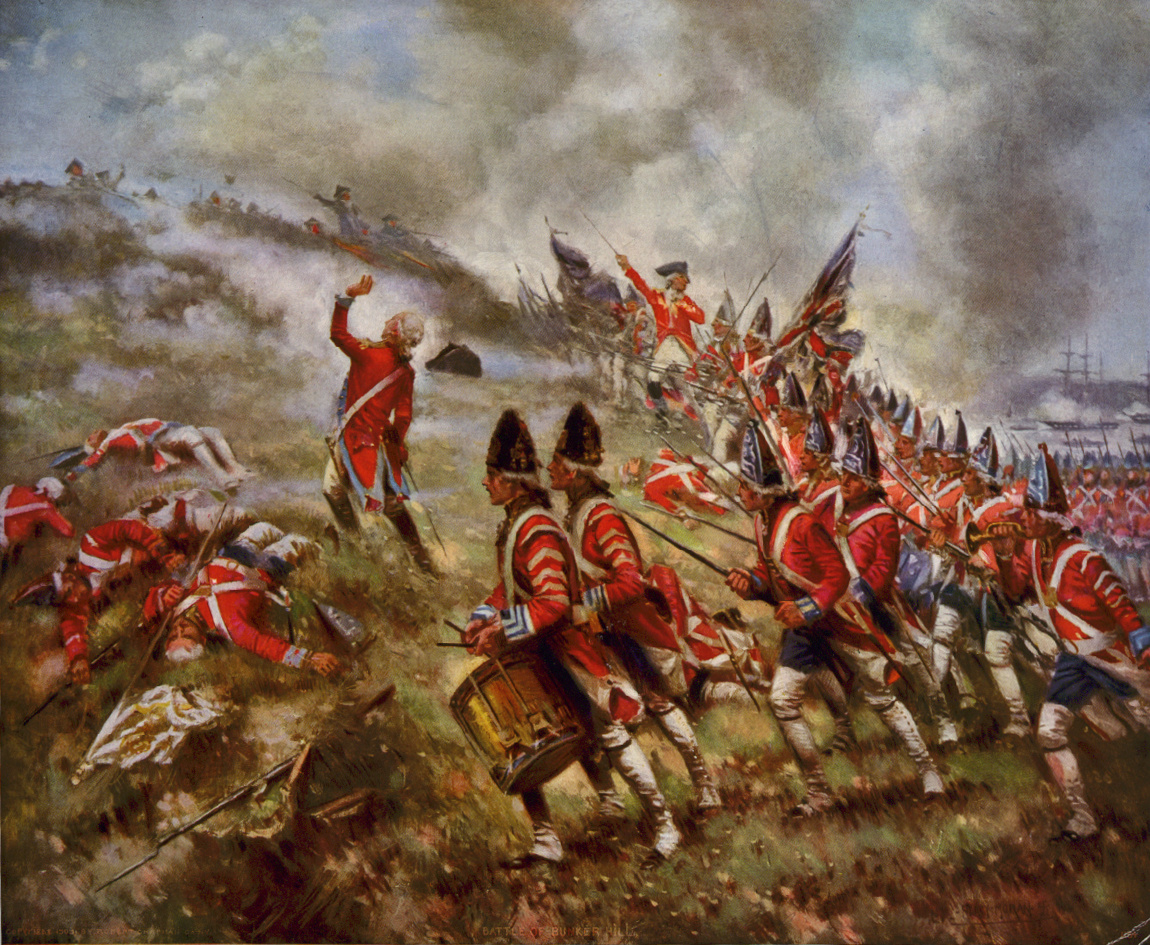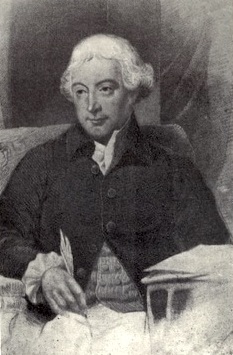|
Jonathan Eddy
Jonathan Eddy (–1804) was a British-American soldier, who fought for the British in the French and Indian War and for the Americans in the American Revolution. After the French and Indian War, he settled in Nova Scotia as a New England Planter, becoming a member of the General Assembly of Nova Scotia. During the American Revolutionary War, he was strongly supportive of the rebellion against the Crown. He encouraged the residents of Nova Scotia to join in open revolt against King George III and England. He led a failed attempt to capture Fort Cumberland in 1776 and was forced to retreat to Massachusetts, the place of his birth. The following year, he led the defense of Machias, Maine during the Battle of Machias (1777). After the war, he established the community now known as Eddington, Maine in 1784, where he died. French and Indian War Jonathan Eddy was born in Norton, Massachusetts in 1726 or 1727. In 1755, he enlisted in the Massachusetts militia and participated in Rober ... [...More Info...] [...Related Items...] OR: [Wikipedia] [Google] [Baidu] |
Norton, Massachusetts
Norton is a town in Bristol County, Massachusetts, United States, and contains the villages of Norton Center and Chartley. The population was 19,202 at the 2020 census. Home of Wheaton College, Norton hosts the Dell Technologies Championship, a tournament of the PGA Tour held annually on the Labor Day holiday weekend at the TPC Boston golf club. History Winnecunnet Lake was an ancient fishing, hunting, and camping site known for thousands of years by Indigenous Pokanoket and Mattakeeset families. In the old days before dams and other obstructions, rivers running gently into the lake and swamplands around it provided canoe routes north to Lake Massapoag and south to the Taunton River. Growing tall in the lowlands along two of Norton’s main waterways—Wading and Rumford—- and continuing further along their convergence into Three Mile River, a thick forest of cedar trees grew dark and intertwined together. These swampy forests were places of safety in the winter, when ... [...More Info...] [...Related Items...] OR: [Wikipedia] [Google] [Baidu] |
Battle Of Fort Beauséjour
The Battle of Fort Beauséjour was fought on the Isthmus of Chignecto and marked the end of Father Le Loutre's War and the opening of a British offensive in the Acadia/Nova Scotia theatre of the Seven Years' War, which would eventually lead to the end of the French colonial empire in North America. The battle also reshaped the settlement patterns of the Atlantic region, and laid the groundwork for the modern province of New Brunswick. Beginning June 3, 1755, a British army under Lieutenant-Colonel Robert Monckton staged out of nearby Fort Lawrence, besieged the small French garrison at Fort Beauséjour with the goal of opening the Isthmus of Chignecto to British control. Control of the isthmus was crucial to the French because it was the only gateway between Quebec and Louisbourg during the winter months. After two weeks of siege, Louis Du Pont Duchambon de Vergor, the fort's commander, capitulated on June 16. Historical context Tensions between the English and the French c ... [...More Info...] [...Related Items...] OR: [Wikipedia] [Google] [Baidu] |
William Howe, 5th Viscount Howe
William Howe, 5th Viscount Howe, KB PC (10 August 172912 July 1814) was a British Army officer who rose to become Commander-in-Chief of British land forces in the Colonies during the American War of Independence. Howe was one of three brothers who had distinguished military careers. In historiography of the American war he is usually referred to as Sir William Howe to distinguish him from his brother Richard, who was 4th Viscount Howe at that time. Having joined the army in 1746, Howe saw extensive service in the War of the Austrian Succession and Seven Years' War. He became known for his role in the capture of Quebec in 1759 when he led a British force to capture the cliffs at Anse-au-Foulon, allowing James Wolfe to land his army and engage the French in the Battle of the Plains of Abraham. Howe also participated in the campaigns to take Louisbourg, Belle Île and Havana. He was appointed Lieutenant-Governor of the Isle of Wight, a post he held until 1795. Howe was sen ... [...More Info...] [...Related Items...] OR: [Wikipedia] [Google] [Baidu] |
Truro, Nova Scotia
Truro (Mi'kmaq: ''Wagobagitik''; Scottish Gaelic: ''Truru'') is a town in central Nova Scotia, Canada. Truro is the shire town of Colchester County and is located on the south side of the Salmon River floodplain, close to the river's mouth at the eastern end of Cobequid Bay. History The area has been home to the Mi'kmaq people for several centuries. The Mi'kmaq name for the Truro area, "Wagobagitik" means "end of the water's flow". Mi'kmaq people continue to live in the area at the Millbrook and Truro reserves of the Millbrook – We’kopekwitk band. Acadian settlers came to this area in the early 1700s. The Mi'kmaq name for the Truro area was shortened by the settlers to "Cobequid", and the bay to the west of the town is still named Cobequid Bay. By 1727, the settlers had established a small village near the present downtown site of Truro known as "Vil Bois Brule" (Village in the burnt wood). Many Acadians in this region left in the Acadian Exodus which preceded the Expuls ... [...More Info...] [...Related Items...] OR: [Wikipedia] [Google] [Baidu] |
Continental Army
The Continental Army was the army of the United Colonies (the Thirteen Colonies) in the Revolutionary-era United States. It was formed by the Second Continental Congress after the outbreak of the American Revolutionary War, and was established by a resolution of Congress on June 14, 1775. The Continental Army was created to coordinate military efforts of the Colonies in their war for independence against the British, who sought to keep their American lands under control. General George Washington was the commander-in-chief of the army throughout the war. The Continental Army was supplemented by local militias and volunteer troops that were either loyal to individual states or otherwise independent. Most of the Continental Army was disbanded in 1783 after the Treaty of Paris formally ended the fighting. The 1st and 2nd Regiments of the Army went on to form what was to become the Legion of the United States in 1792. This became the foundation of what is now the United Stat ... [...More Info...] [...Related Items...] OR: [Wikipedia] [Google] [Baidu] |
Royal Fencible American Regiment
The Royal Fencible American Regiment of Foot (or RFA) was a Loyalist battalion of infantry raised in 1775 to defend British interests in the colony of Nova Scotia. The RFA was commanded by Lt. Col. Joseph Goreham throughout its existence. The most notable achievement of the RFA (and its only combat as a regiment) was the successful defense of Fort Cumberland during the Eddy Rebellion in November, 1776, which prevented the revolution in the other American colonies from moving into Nova Scotia. Formation Goreham was a prominent landowner in Nova Scotia in 1775, as well as a former officer of Gorham's Rangers during the French and Indian War. Noting the growing tensions in New England and especially Boston between the government and the patriot movement, he wrote the following to Gov. Francis Legge: Proposed to raise a Battalion of Light infantry or Royal Fensible Americans, To consist of Five Companies. 1 Lieut. Col. Commandant and Captain, 4 Captains, 1 Capt. Lieut., 4 Li ... [...More Info...] [...Related Items...] OR: [Wikipedia] [Google] [Baidu] |
Joseph Goreham
Joseph Gorham (sometimes recorded as Goreham, 1725–1790) was an American colonial military officer during King George's War and later a British army commander during the Seven Years' War and the American Revolutionary War. He is best known for leading a company of British imperial Rangers, called Gorham's Rangers, during the 1750s and early 1760s. Gorham's unit played an important role in the French and Indian War and were early practitioners of American frontier warfare, more commonly known as ''petite guerre'' or Guerrilla warfare. He also became Governor of Placentia. Family The Gorham family (from Cape Cod) had a distinguished history in the New England colonial military. Serving alongside the early colonial military innovator Benjamin Church, John Gorham I died while fighting in the famous Great Swamp Fight during King Philip's War. Joseph's grandfather, John Gorham II, also served with Church during the fourth Eastward Expedition into Acadia, which involve ... [...More Info...] [...Related Items...] OR: [Wikipedia] [Google] [Baidu] |
Governor Of Nova Scotia
The following is a list of the governors and lieutenant governors of Nova Scotia. Though the present day office of the lieutenant governor in Nova Scotia came into being only upon the province's entry into Canadian Confederation in 1867, the post is a continuation from the first governorship of Nova Scotia in 1710. For much of the time, the full title of the post was Governor of Nova Scotia and Placentia (Placentia being in Newfoundland). Before the British occupation of Nova Scotia, the province was governed by French Governors of Acadia. From 1784 to 1829 Cape Breton Island was a separate colony with a vice regal post. Governors of Nova Scotia, 1710–1786 Lieutenant governors of Cape Breton Island, 1784–1820 Lieutenant governors of Nova Scotia, 1786–1867 Lieutenant governors of Nova Scotia, 1867–present See also * Office-holders of Canada * Canadian incumbents by year External links * * References {{Nova Scotia politics * Nova Scotia Nova Scot ... [...More Info...] [...Related Items...] OR: [Wikipedia] [Google] [Baidu] |
Mariot Arbuthnot
Admiral Mariot Arbuthnot (1711 – 31 January 1794) was a British admiral, who commanded the Royal Navy's North American station during the American War for Independence. Early life A native of Weymouth, Dorset in England, Arbuthnot was the son of Robert Arbuthnot and Sarah, née Bury. Robert's father was the son of the Rev. Robert Arbuthnot, Presbyterian minister of Crichton & Cranston. Mariot Arbuthnot entered the Royal Navy in the late 1720s, became a lieutenant in 1739, and commander in 1746. In 1746 he was commander of the sloop , which captured two French privateers while employed as a cruiser in the channel. He was appointed post captain in 1747. On 22 June 1747 Arbuthnot became captain of the frigate . Shortly afterwards he became captain of the . Seven Years' War In 1757 he became chief officer of the . In 1759, during the Seven Years' War, he commanded the , one of the ships employed under Commodore Robert Duff in the blockade of Quiberon Bay, and was present at t ... [...More Info...] [...Related Items...] OR: [Wikipedia] [Google] [Baidu] |
Musket
A musket is a muzzle-loaded long gun that appeared as a smoothbore weapon in the early 16th century, at first as a heavier variant of the arquebus, capable of penetrating plate armour. By the mid-16th century, this type of musket gradually disappeared as the use of heavy armour declined, but ''musket'' continued as the generic term for smoothbore long guns until the mid-19th century. In turn, this style of musket was retired in the 19th century when rifled muskets (simply called rifles in modern terminology) using the Minié ball (invented by Claude-Étienne Minié in 1849) became common. The development of breech-loading firearms using self-contained cartridges (introduced by Casimir Lefaucheux in 1835) and the first reliable repeating rifles produced by Winchester Repeating Arms Company in 1860 also led to their demise. By the time that repeating rifles became common, they were known as simply "rifles", ending the era of the musket. Etymology According to the Online Ety ... [...More Info...] [...Related Items...] OR: [Wikipedia] [Google] [Baidu] |
George Washington
George Washington (February 22, 1732, 1799) was an American military officer, statesman, and Founding Father who served as the first president of the United States from 1789 to 1797. Appointed by the Continental Congress as commander of the Continental Army, Washington led the Patriot forces to victory in the American Revolutionary War and served as the president of the Constitutional Convention of 1787, which created the Constitution of the United States and the American federal government. Washington has been called the " Father of his Country" for his manifold leadership in the formative days of the country. Washington's first public office was serving as the official surveyor of Culpeper County, Virginia, from 1749 to 1750. Subsequently, he received his first military training (as well as a command with the Virginia Regiment) during the French and Indian War. He was later elected to the Virginia House of Burgesses and was named a delegate to the Continental Con ... [...More Info...] [...Related Items...] OR: [Wikipedia] [Google] [Baidu] |
Samuel Adams
Samuel Adams ( – October 2, 1803) was an American statesman, political philosopher, and a Founding Father of the United States. He was a politician in colonial Massachusetts, a leader of the movement that became the American Revolution, and one of the architects of the principles of American republicanism that shaped the political culture of the United States. He was a second cousin to his fellow Founding Father, President John Adams. Adams was born in Boston, brought up in a religious and politically active family. A graduate of Harvard College, he was an unsuccessful businessman and tax collector before concentrating on politics. He was an influential official of the Massachusetts House of Representatives and the Boston Town Meeting in the 1760s, and he became a part of a movement opposed to the British Parliament's efforts to tax the British American colonies without their consent. His 1768 Massachusetts Circular Letter calling for colonial non-cooperation prompted ... [...More Info...] [...Related Items...] OR: [Wikipedia] [Google] [Baidu] |






_by_Dominic_Serres%2C_c._1765.jpg)

